Do you tend to worry about safety when using your pool? The best pool alarms will give you added peace of mind so you can truly relax and enjoy the experience of being around water. Designed to keep you safe by reducing the risk of accidents and deterring intruders, they allow you to relax that little bit more, whether inside or outside of your home. Whether you need a pool alarm for an above-ground or in-ground swimming pool, many choices suit your needs.
In some states, pool alarms are a legal requirement. While this might not apply to you, you might want to consider one simply for reassurance that intruders cannot gain access without you being alerted.
Now, let's get into how they work. The best pool alarms sound an alarm whenever the pool levels rise, which is a sign that someone or something has entered the water. The sound level is high enough that you can hear it throughout your home, so you can feel secure even if the pool is out of sight. Some designs work differently—you either install the alarm at the side of the pool or allow it to float in the water.
If you want to increase the safety of your children in your pool, a wearable pool alarm might be a good choice. This is essentially a bracelet that your child wears when in the pool. When submerged, it sounds the alarm, so you're instantly alerted. You also have the option to turn these off so you don't have the nuisance of a false alarm when you're already watching the kids.
Are you wanting to spend more time in your pool in the cooler months? You may want to check out our guide to the best pool heaters. And if cleaning your pool is the chore you always put off, the best pool cleaners will give you a helping hand.
The best pool alarms we recommend
Why you can trust Top Ten Reviews Our expert reviewers spend hours testing and comparing products and services so you can choose the best for you. Find out more about how we test.
The best pool alarm overall
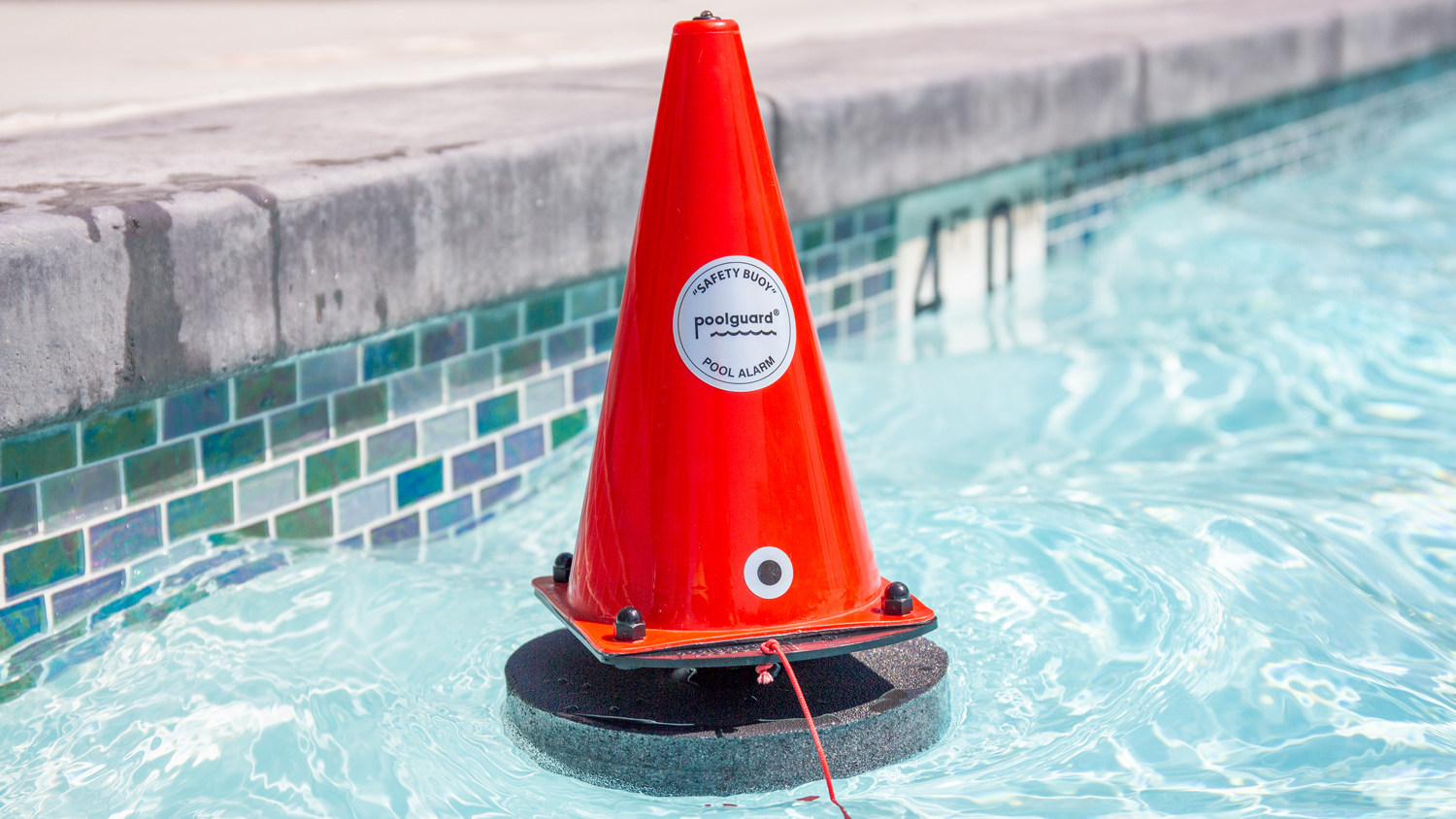
The Safety Buoy lives up to its name – it floats on the water's surface and sounds an alarm when the water is disturbed. It’s shaped like a traffic cone, which screams safety to us. You can attach it to the side of your pool with a string if you don’t want it floating out of reach.
In our tests, the Safety Buoy received a B- for object detection because while it picked up the sweatshirt we threw into the pool and a human getting into the water, it didn’t register any golf balls we tossed in.
Turning the alarm off once it sounds is more complicated than simply pressing a button. You have to touch the side of the buoy with the included magnetic key and hold it there for two or three seconds before the alarm stops beeping. It put out 97.7 decibels of sound in our tests, making it the quietest alarm we reviewed. That being said, it’s still incredibly loud.
The buoy requires a 9-volt battery, which is easy to install and is supposed to last roughly one year, depending on how often the alarm sounds. This pool alarm is lightweight, fairly easy to assemble and use, and reasonably priced.
The best affordable in-ground alarm
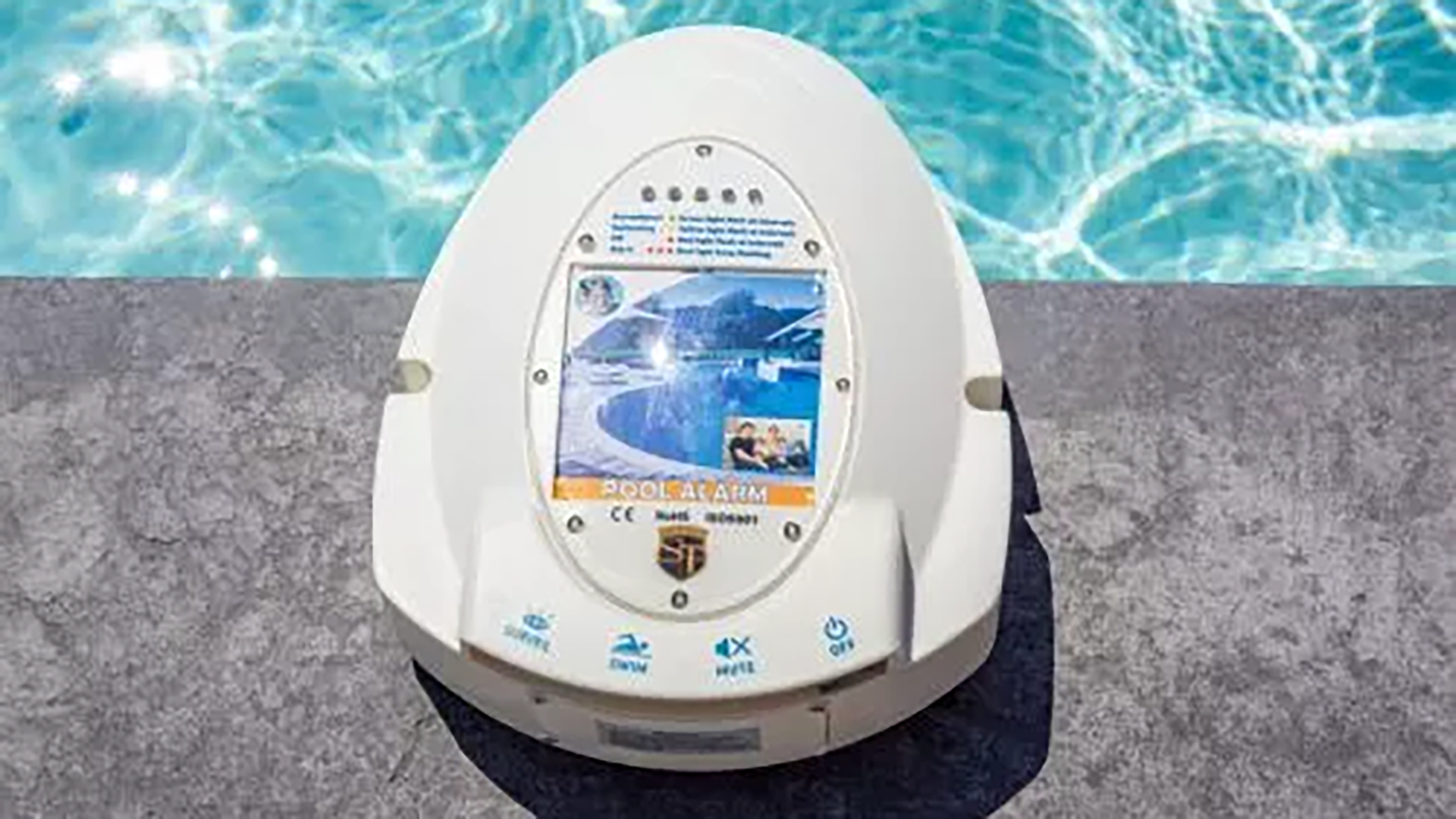
The Brickhouse pool alarm is designed for pools that are either in-ground or near a deck, as the top has to be level with the ground while the arm extends into the water. It's a subsurface alarm that goes off when it senses an underwater pressure change.
We tested this alarm in a smaller pool than it's made for, so we were sure to consider this when assessing its sensitivity. The alarm sounded when we tossed a wet sweatshirt into the pool, and a person stepped into it. It didn't go off when we threw golf balls into the water. We gave it an overall grade of B—for object detection but an A+ for weather resistance, as our leaf blower simulating wind didn't make it go off.
It's also simple to turn off. Some designs that require a key pose some difficulty in switching off the blaring alarm; however, this option operates with a large metal slider. Press the slider to switch the alarm to a different mode - green, amber, and red. Green means the alarm is on, yellow means it's sleeping, and red means it's turned off. This makes it super intuitive to use.
With a sound rating of 100.5dB, it's a mid-range option compared to other alarms we've tested. However, this is still very loud. You can also place the remote receiver up to 300 feet away, so you're bound to hear it.
The most stylish pool alarm
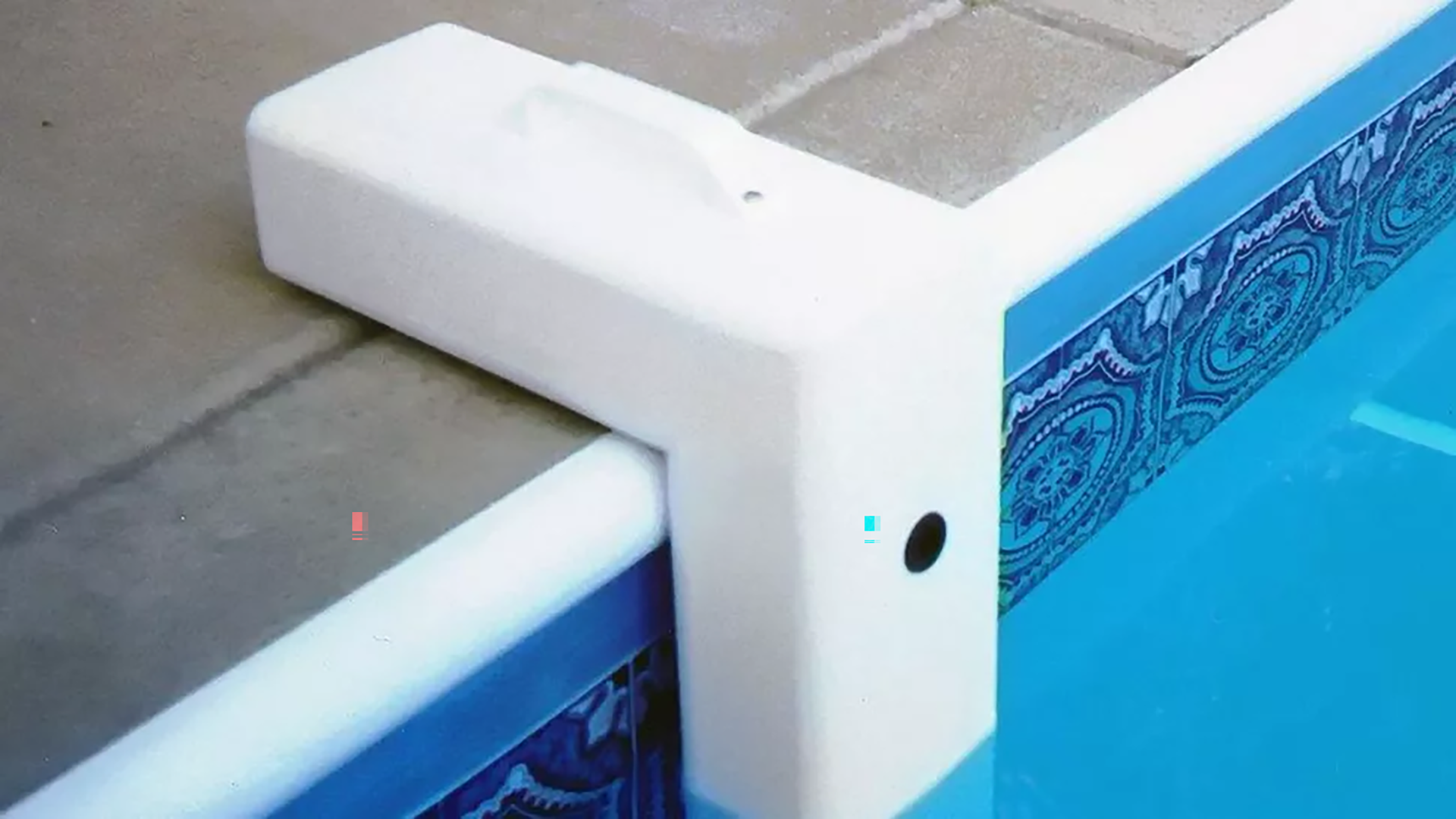
The Poolguard PGRM-2 is an in-ground pool alarm that can only be used on built-in pools or those near a deck. It must be attached by drilling a small hole into the surrounding tiles or masonry, so it's potentially not your choice if you're looking for a fast set-up. It also requires a battery, which isn't included, so you'll have to purchase this separately.
This alarm is great for smaller pools of 800 ft or below, but if your pool is larger than this, it's best to opt for more than one alarm or choose an option with a larger range.
This model detects any water intrusions above 18ft, which is approximately the weight of a one-year-old child. The alarm also sounds at 85dB, which is the equivalent of standing next to heavy traffic—not the loudest of our selection, but still loud enough to hear. Although the alarm has been designed to distinguish real intruders from strong wind, some reviewers have noted that it repeatedly sounded when the wind blew.
The best pool alarm for small pools
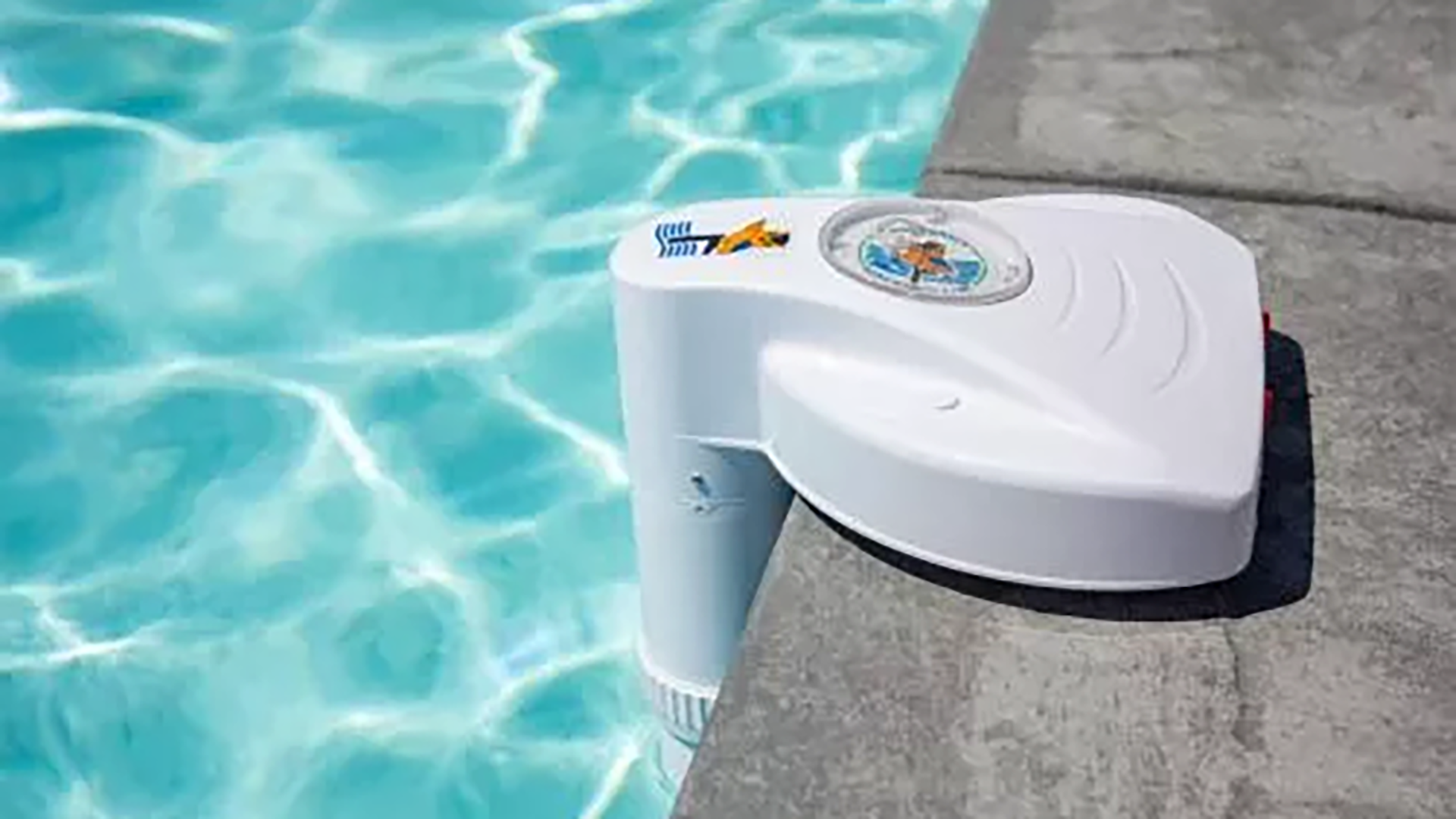
The Blue Wave NA4212 alarm is an in-ground option for pools with a 90-degree angle. It must be mounted on a flat surface next to the pool, so it's best to check the instructions to ensure it's in the right spot to work accurately—this should be on the long edge of a rectangular pool or the tip of an oval pool. It requires six D batteries, and the device will sound an alarm if these are running out.
This alarm has a shorter range than others we've tested - both in pool size and remote receiver. If you have a pool larger than 16 x 32 ft, you'll need more than one alarm. This model also only has a remote receiver distance of 100ft, so if your pool is far from your house, it might be worth reconsidering.
It is, however, very loud. We recorded it at 101.3 dB of sound, making it the second-loudest we tested in our roundup. And when it does sound, it's easy to turn off, so it will save your eardrums. You simply press the silver slider on the alarm and move it to the 'off' position.
The loudest pool alarm
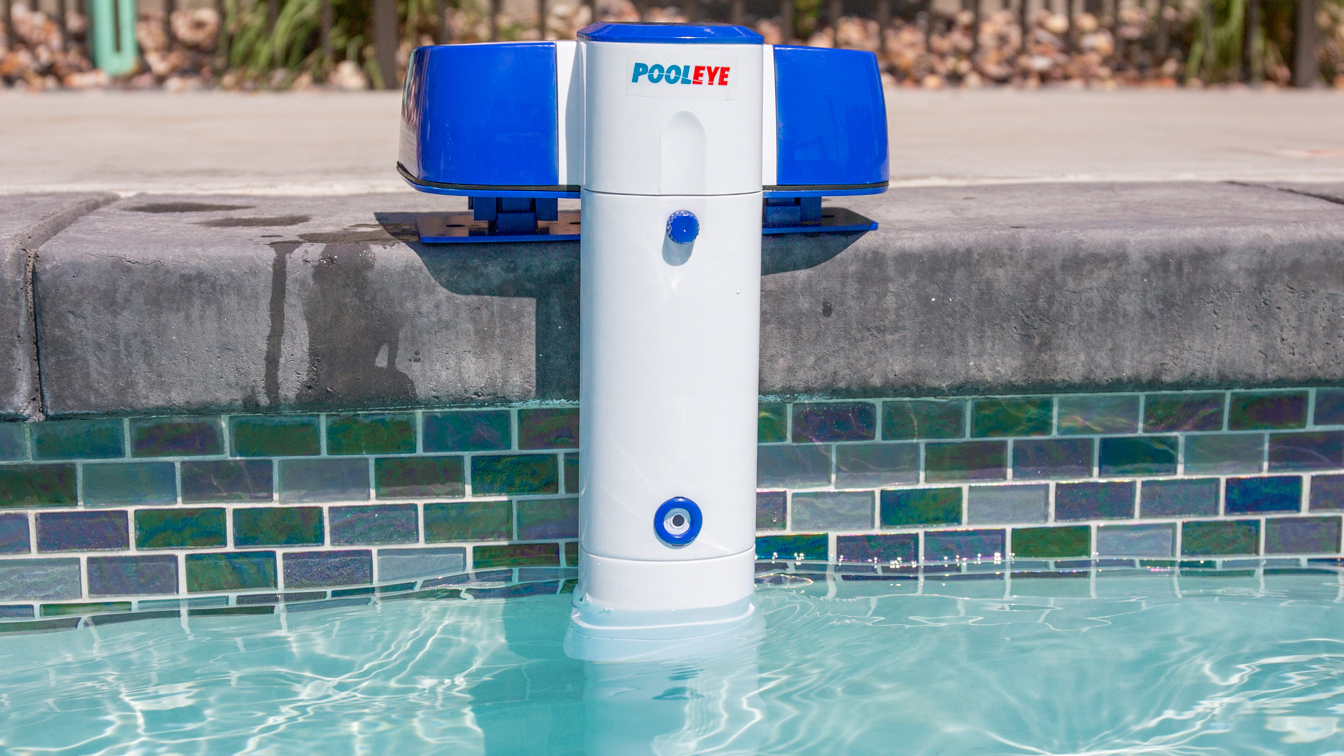
You’ll know if the SmartPool PE23 PoolEye AG/IG pool alarm goes off. In our tests, it registered 101.6 decibels, louder than a garbage disposal, a blender, or a diesel truck passing you a mere 50 feet away.
While the unit is cumbersome to assemble, you shouldn’t have to do it often because the batteries are slated to last one year before changing them. Since it’s a submerged pool alarm, it works best on in-ground pools, as you need to install it on a level surface with the neck submerged underwater.
It detects changes in water pressure and then sounds the alarm loudly when someone or something gets into your pool. This alarm works in pools up to 18 x 36 feet; with its loud alarm, you can be sure your family is safe.
The best pool alarm for large pools
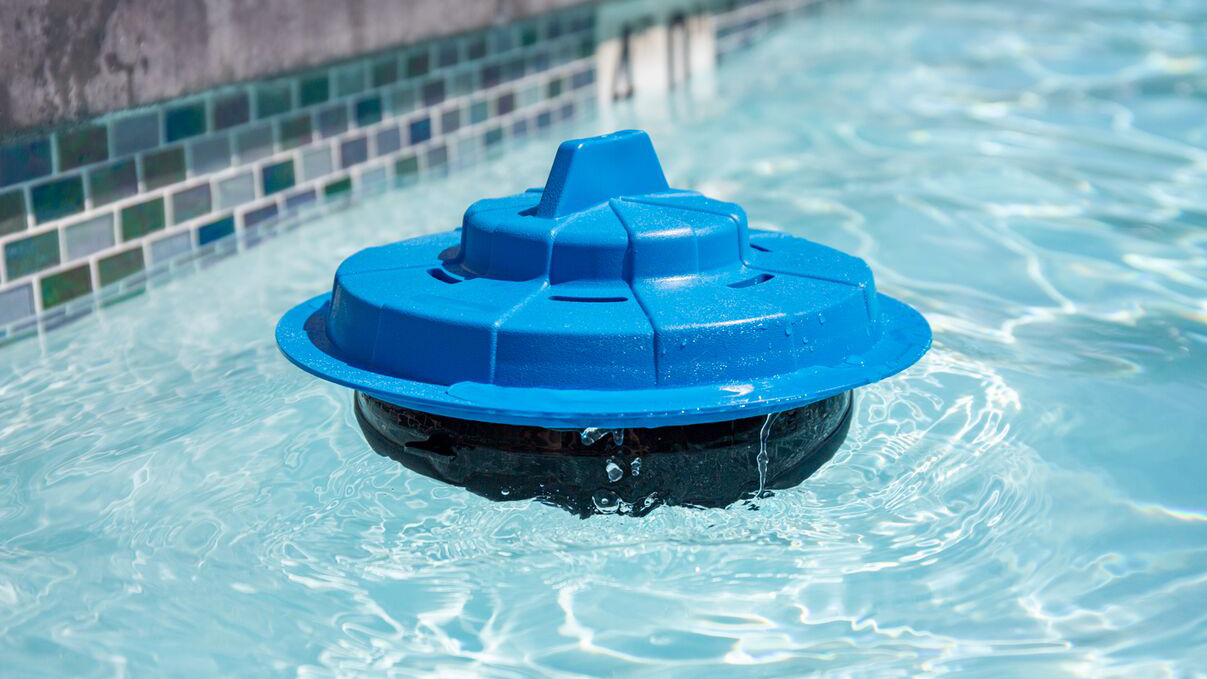
The Pool Patrol PA-30 is very well designed, making it easy to change the alarm sensitivity. While some in-ground pool alarms require installing an extra plastic plate if you hear too many false alarms, the Pool Patrol PA-30 has a base you simply rotate to the left or the right.
This rotating base also turns the alarm off when it sounds, which is quicker and easier than using an alarm that requires a key. The Pool Patrol PA-30 floats on the water's surface and uses one 9-volt battery, which is easy to install under the rotating base.
Along with being very well designed, this alarm earned an A+ in our wind simulation tests and our object detection tests. It also works in pools up to 20 x 40 feet, the largest pool size of the alarms we tested.
How to choose the best pool alarm for you
Alarm strength
Alarm strength is one of the biggest things to consider when choosing a pool alarm. This will impact the alarm's loudness, which is particularly important if you want to hear it from a distant part of your home. One of the quietest alarms we tested put out 98.7 decibels of sound—for context, this is 10 decibels short of a rock band in concert. So, many of them are super loud, but it's definitely something to look out for.
Installation
There are a few different installation types for pool alarms. The most common designs are wearable, floating, and in-ground. A wearable alarm is ideal if you need an alarm for your children, as this ensures it's on their bodies. Floating alarms are easy to install and generally require batteries. However, this could be annoying when using the pool. Lastly, in-ground alarms might require more work but are generally longer-lasting.
Remote range
The remote range is how far the receiver can be placed to connect to the alarm. Some pool alarms are designed as bracelets for children, while others bob around on the pool's surface, so they must be within range of your pool.
Pool size
In our roundup, there are many different alarms for various pool sizes. Some have an unlimited range, while others specify a maximum size of 18 x 36 ft. This is quite simple to check and vital to ensuring your pool alarm works effectively.
Alarm turn off
As mentioned above, pool alarms are incredibly loud, and you're unlikely to want the sound as loud as a rock band in your ear for an extended period. Some alarms can be turned off by simply pressing a button. However, others require a key. A key is beneficial as it means that children or intruders can't turn off the alarm themselves - increasing the chance of you catching an incident. However, it does mean that it might take longer to turn it off, and you need to remember where you've placed the key. This comes down to your purpose of having a pool alarm and how easily you want to turn it off.
Pool alarm FAQs
How much does a pool alarm cost?
The best pool alarms are designed to give you peace of mind about your family’s safety, though this doesn’t necessarily come cheap. Out of the eight pool alarms we tested, all but one cost over $100, and the average cost was $183. The good news is that these devices offer good value in terms of battery life—you can expect them to last a year before you have to change them.
While the initial outlay may seem expensive, the best pool alarms reassure you about your family’s safety, which is a priceless consideration.
How do pool alarms work?
Pool alarms alert you when someone or something enters your pool by sounding a siren. There are two key kinds of pool alarms, and they work in slightly different ways.
Surface detection alarms are sensors that float on top of the pool. If something—such as a person or a pet—splashes into the water, the waves created will reach the sensor and sound the alarm. The downside to such alarms is that they're not very sensitive because they'd be going off constantly if they were. For larger pools, that means you may need more than one.
Sub-surface or in-ground alarms go into the water from the poolside and can detect movement underneath the surface, such as someone's legs kicking. They tend to cost more and need an edge or a railing to sit on or be fixed to, but they're considered more reliable than surface detection alarms.
Although we've said there are two key kinds, there are also other alarms that are sometimes described as pool alarms: enclosure alarms, which affix to gates or doors around your pool area and work just like alarm systems' door and window sensors, triggering the alarm when the gate or door is opened; and wearable alarms, which are safety bracelets for kids and other non-swimmers that will alert you if they go into the water when you're not looking.
Are pool alarms effective?
Yes, but of course, different models have different abilities.
As we've mentioned, pool alarms can be a little hit-and-miss because they need to handle normal movement and wind without being triggered, and not all of them do that: in our tests, we found that gusts of wind set off some models.
Conversely, models that aren't triggered by the wind can miss smaller objects. For example, while we found in our tests that alarms detected us throwing in objects such as sweatshirts, they didn't detect smaller objects.
That means there's a trade-off here: the more sensitive the alarm, the more it'll detect, but it'll also be more likely to go off with false alarms. Given the volume of some of the sirens here, it won't make you very popular with the neighbors if you leave the alarm on during windier days.

